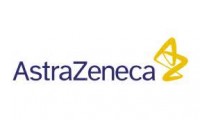-
Gilead Sciences to Acquire Cell Design Labs for $567 Million
- Source: qc.nasdaq
- 428
- December 11, 2017
-
Apple’s First Medical Study Signals Broader Health Ambitions
- Source: wsj
- 561
- December 11, 2017
-
More than 2,000 immune-oncology drugs now in development
- Source: pharmatimes
- 477
- December 11, 2017
-
electroCore completes $70 million series B funding round
- Source: globalbiotechinsights
- 525
- December 8, 2017
-
Tudorza reduces exacerbations and demonstrates cardiovascular safety in COPD patients
- Source: Astrazeneca
- 627
- December 8, 2017
-
Obsidian Therapeutics Announces $49.5 Million Series A Financing to Develop Controllable Cell and Gene Therapy Products
- Source: Businesswire
- 557
- December 8, 2017
-
Gottlieb Says Faster Cancer Drug Approvals Coming for Secondary Indications
- Source: raps.org
- 686
- December 4, 2017
-
Ddu Attended CPhI India
- Source: Ddu
- 1,441
- December 4, 2017
-
Amgen pulls ahead in sprint towards CGRP approval with promising PhIII migraine data
- Source: Endpts
- 511
- December 1, 2017
your submission has already been received.
OK
Subscribe
Please enter a valid Email address!
Submit
The most relevant industry news & insight will be sent to you every two weeks.













